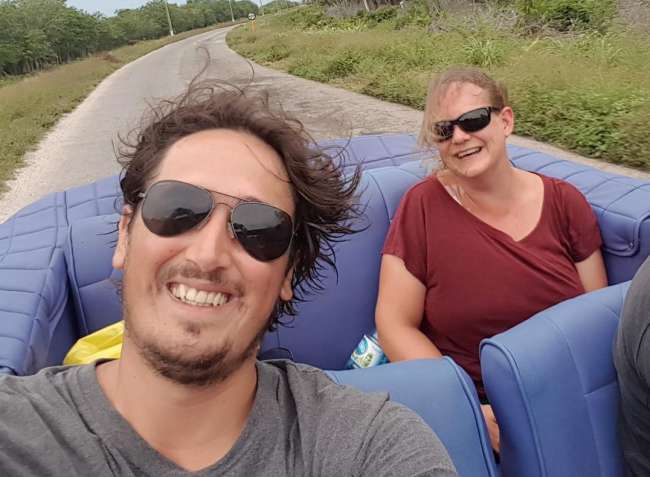Nicaragua: Grenada
Жарияланды: 23.05.2018
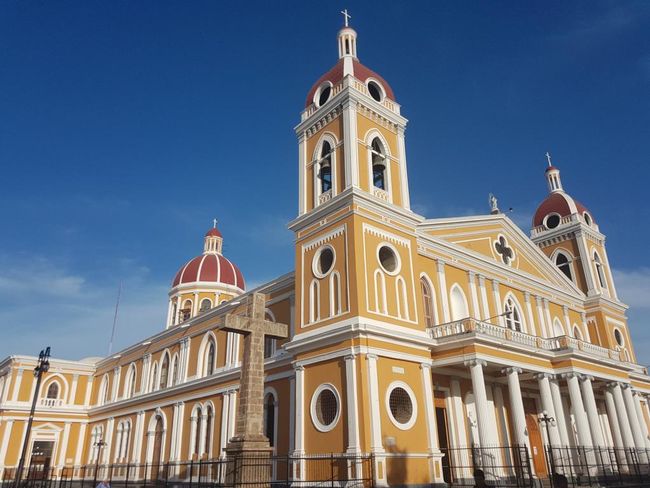
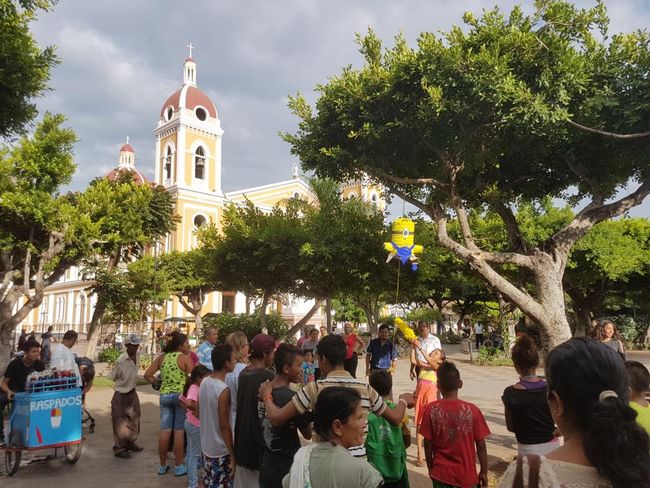
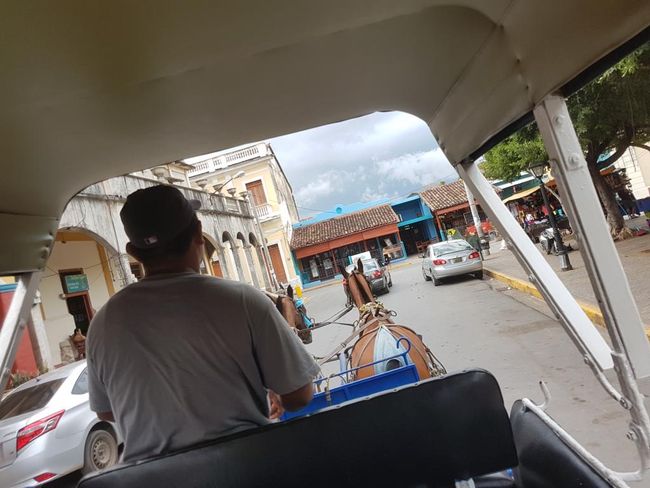
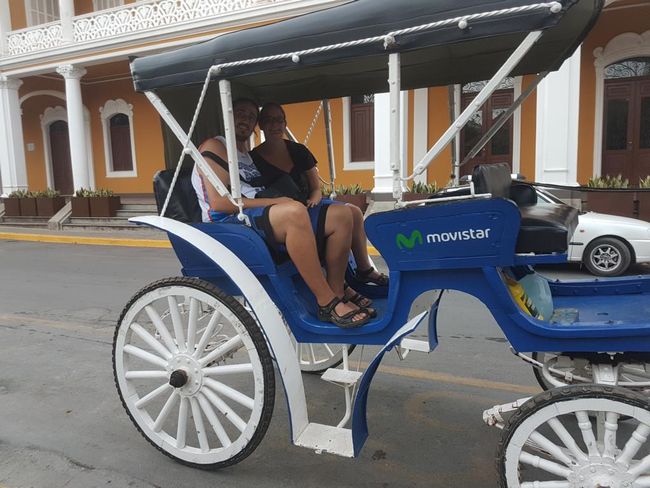
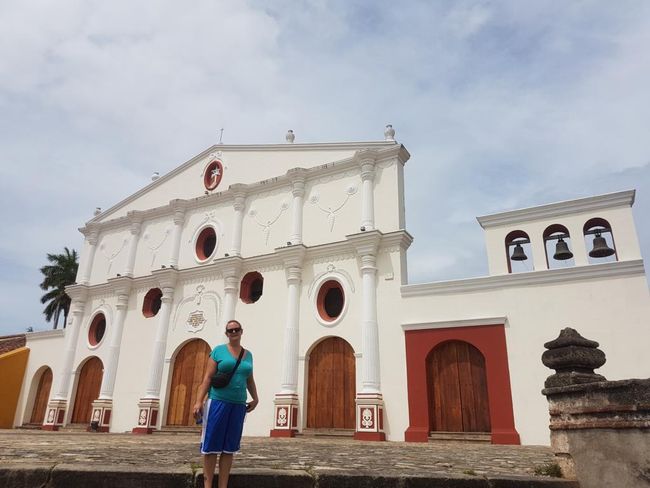
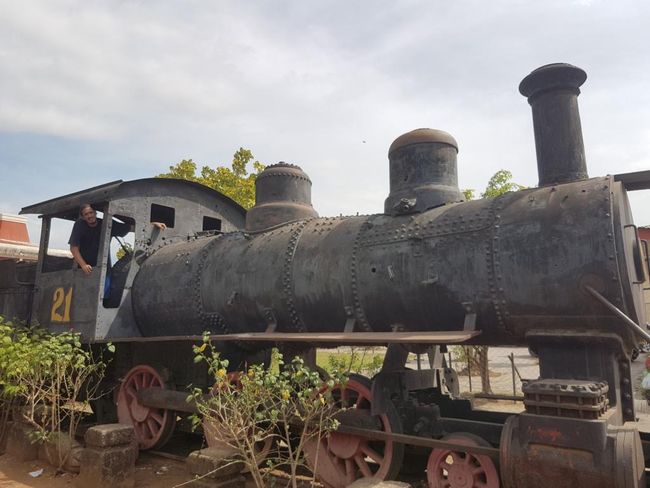
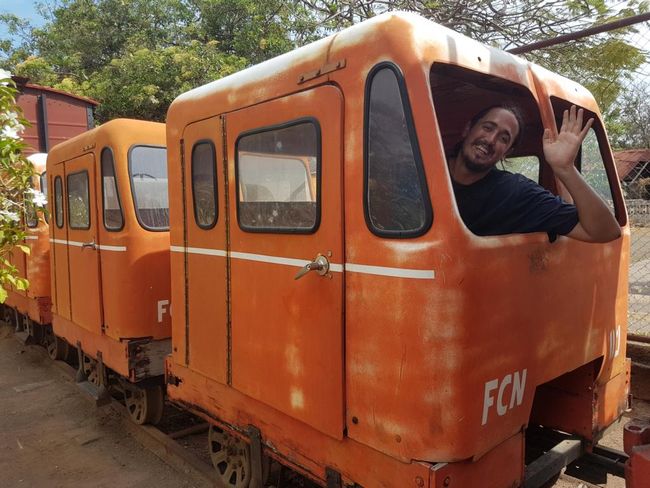
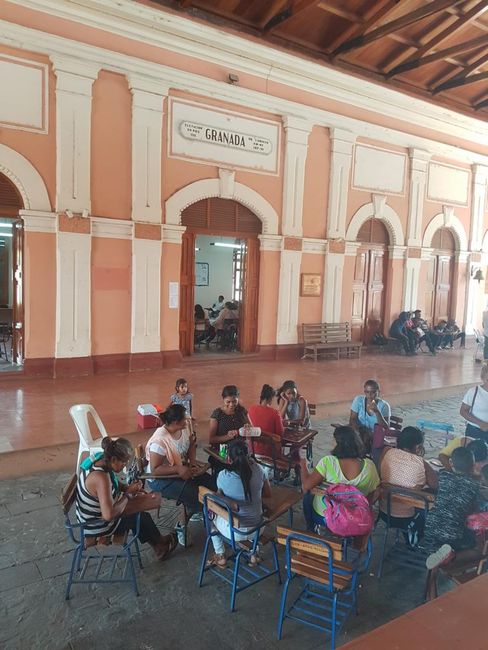
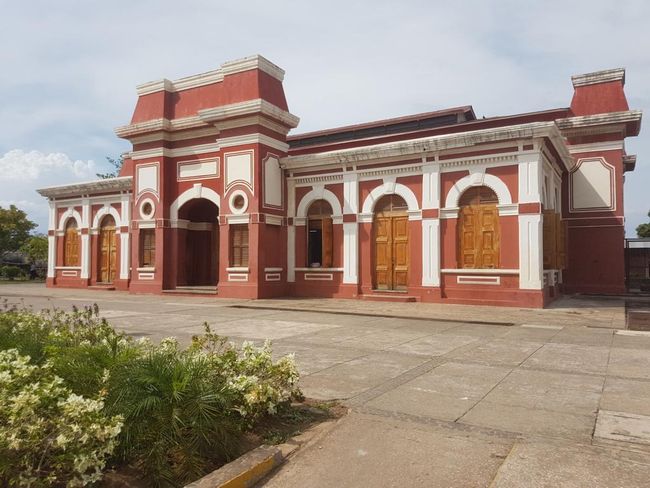
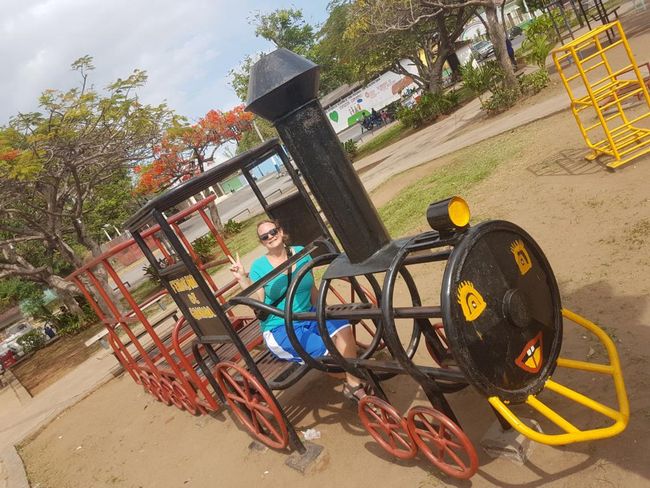
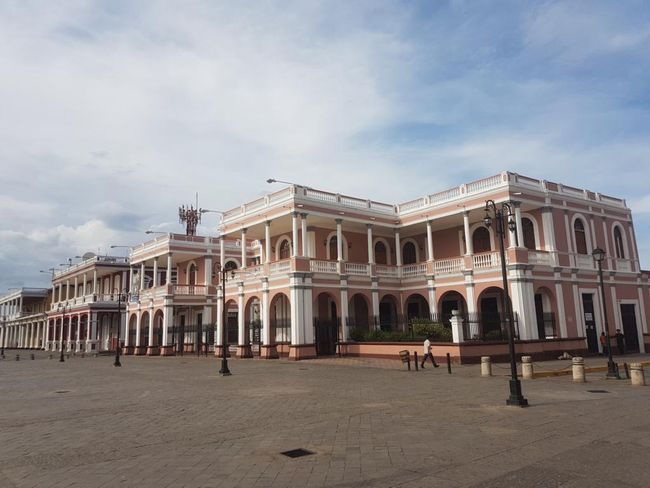
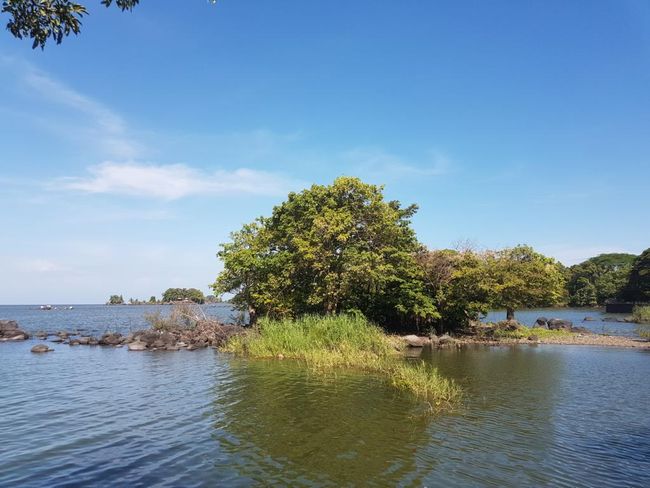
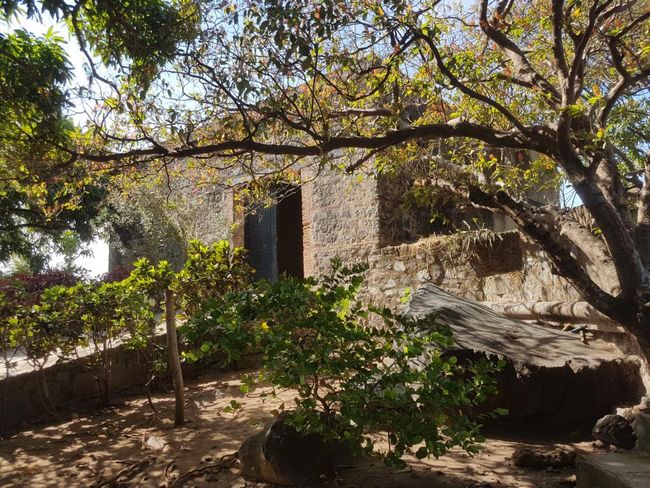
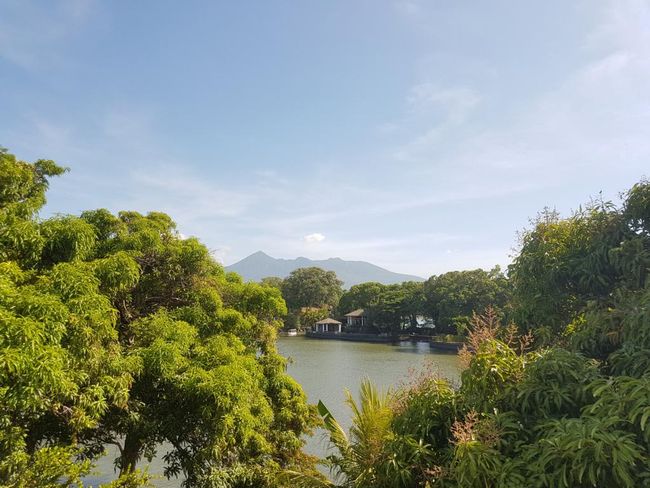
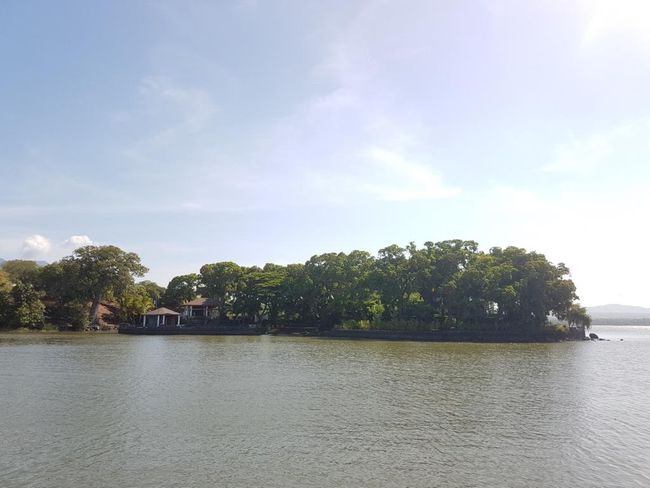
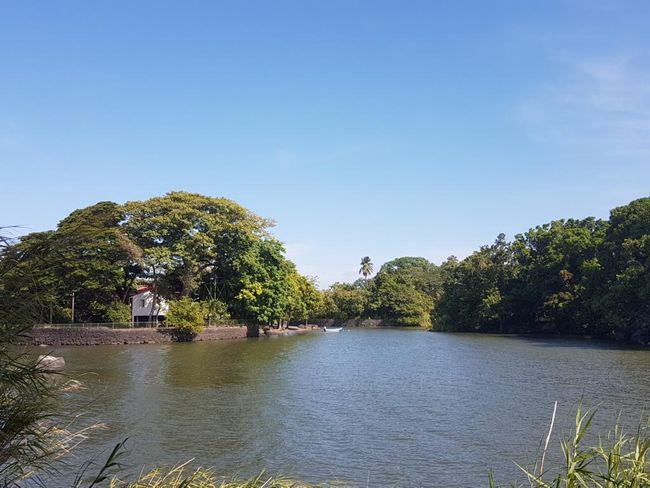
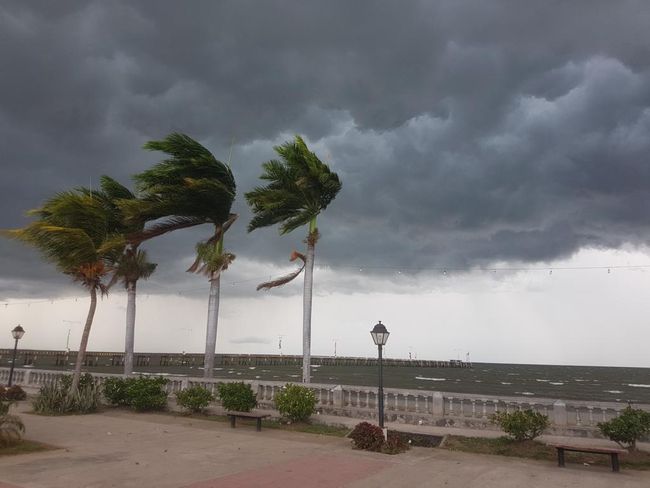
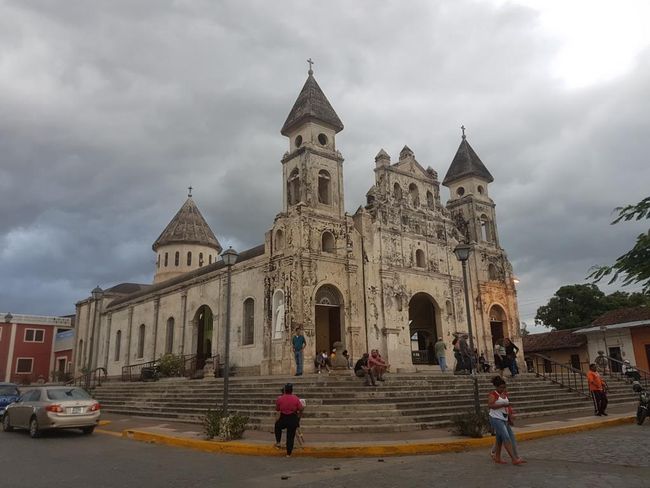
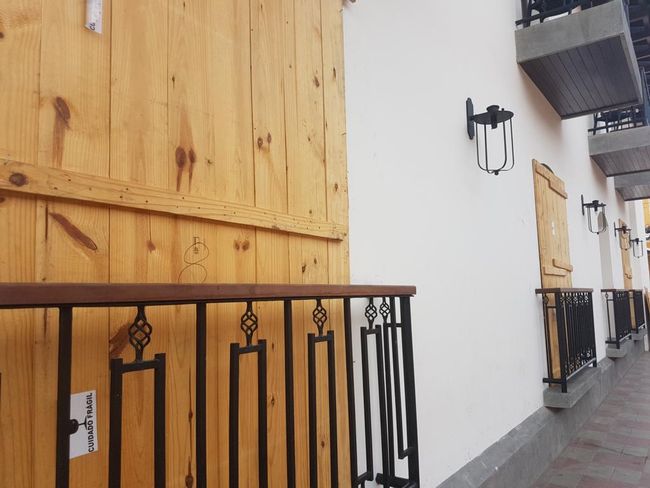
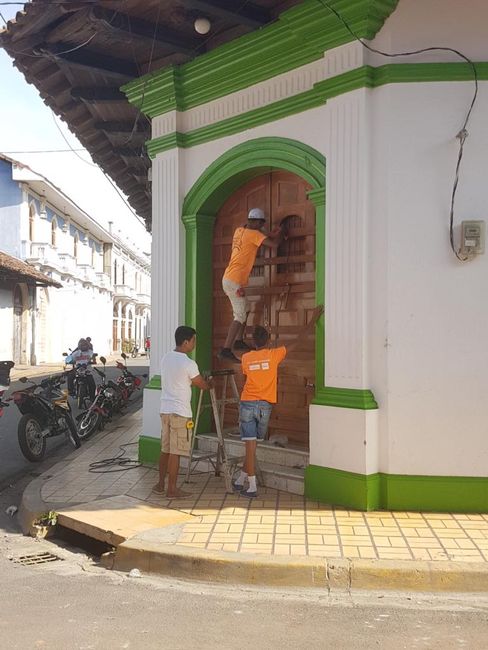
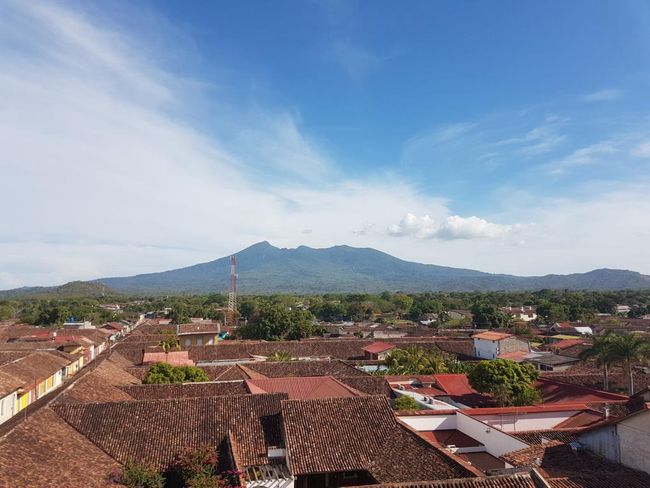
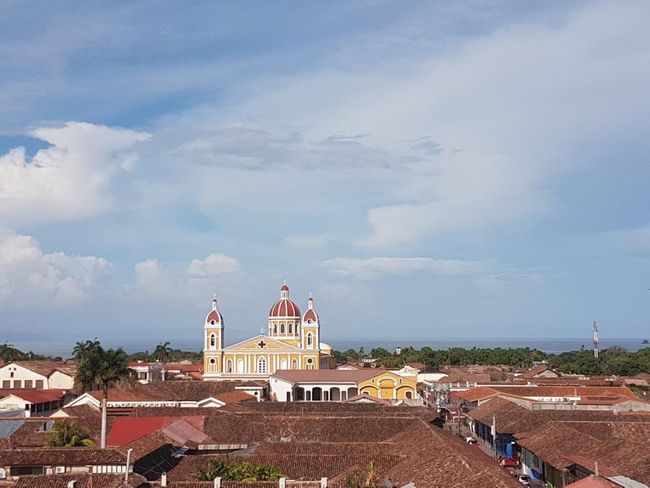
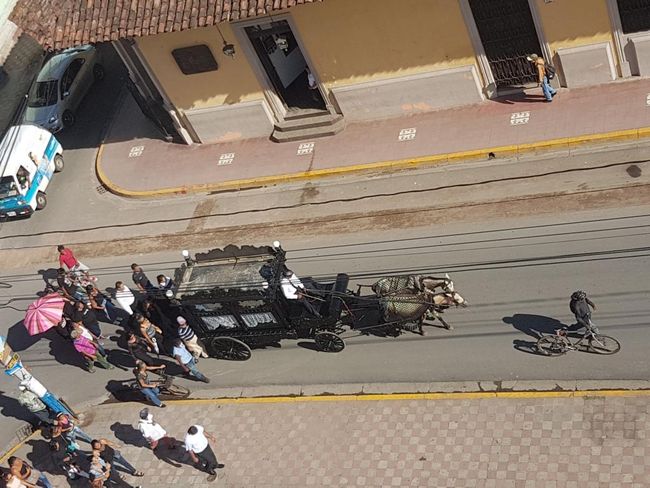
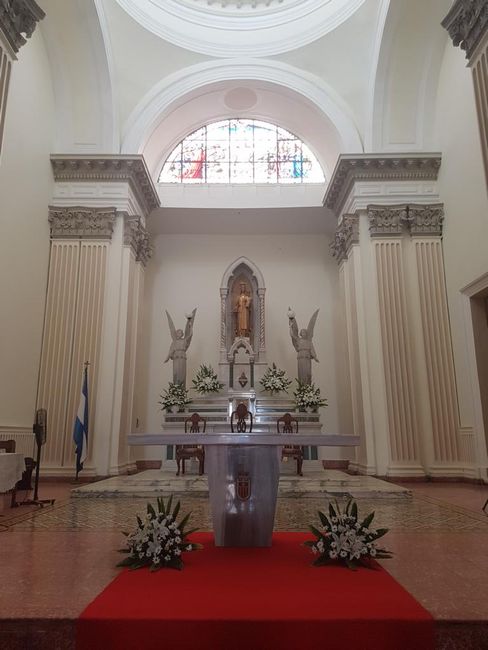
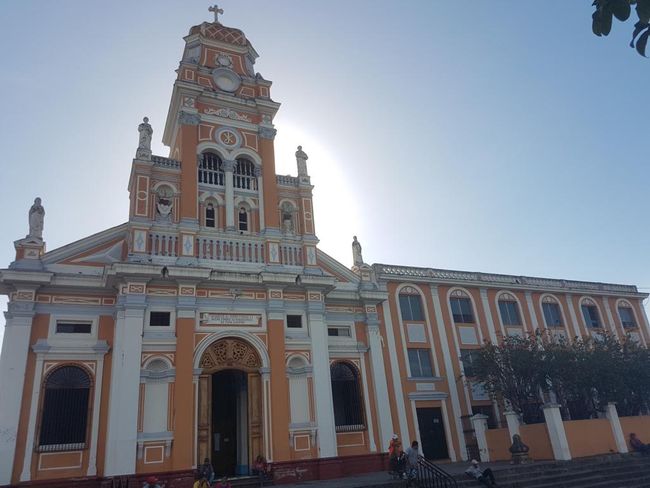
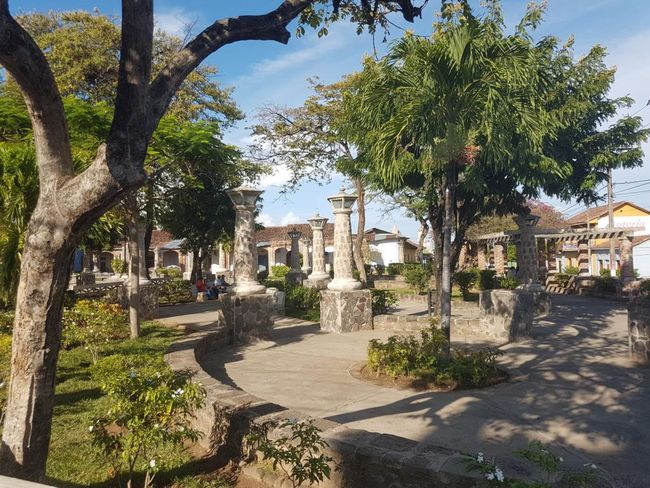
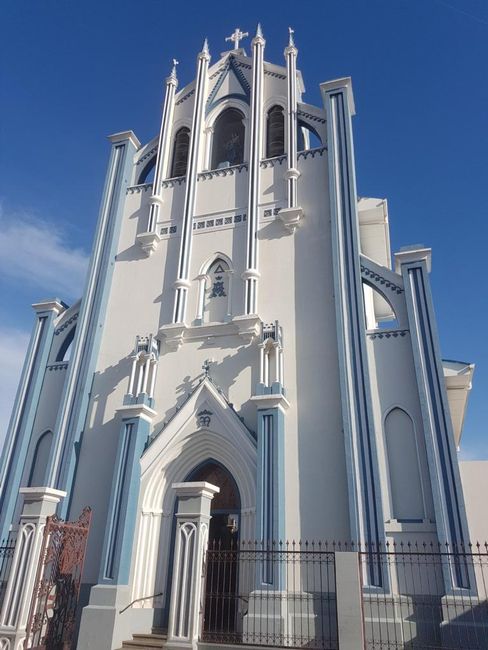
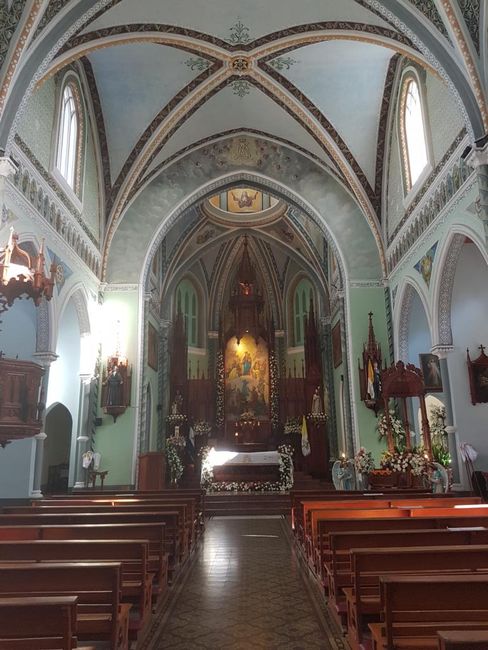
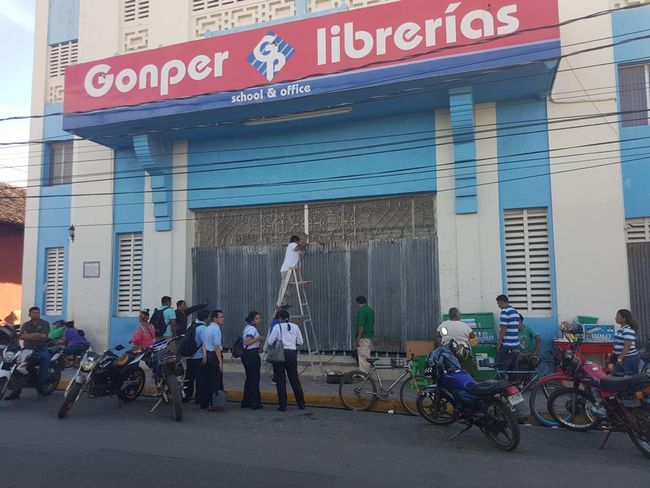
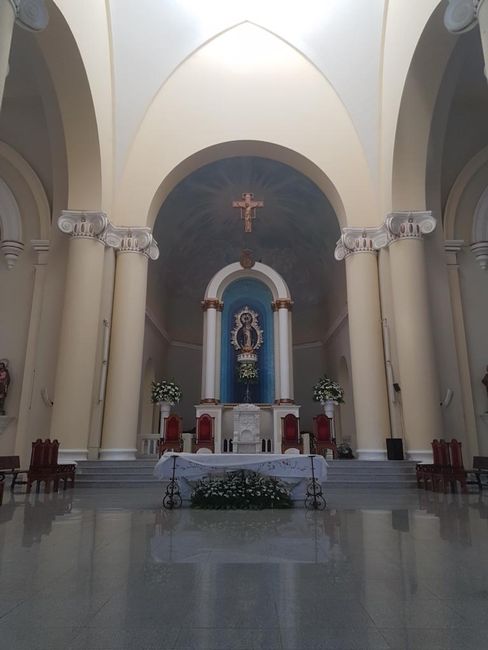
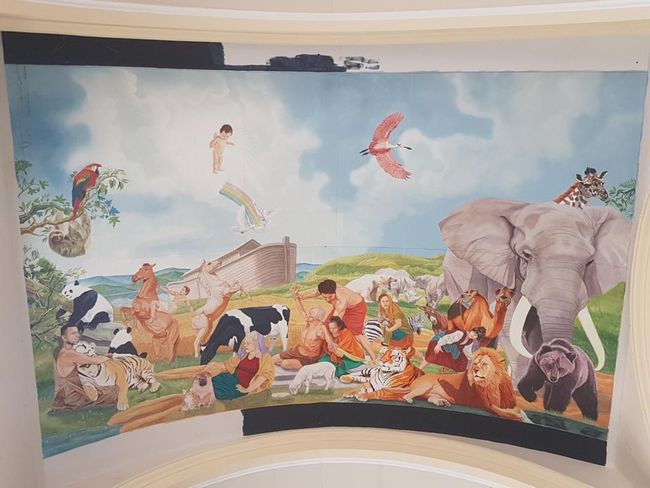
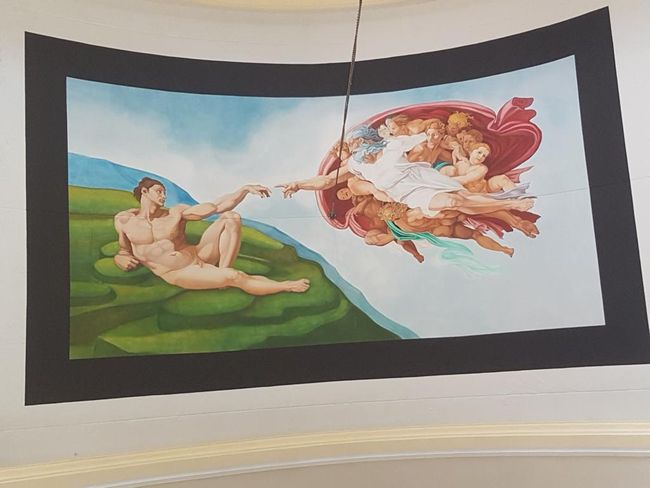
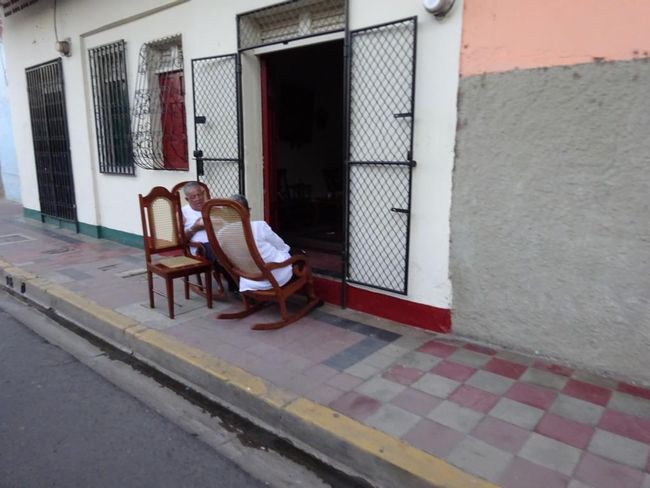
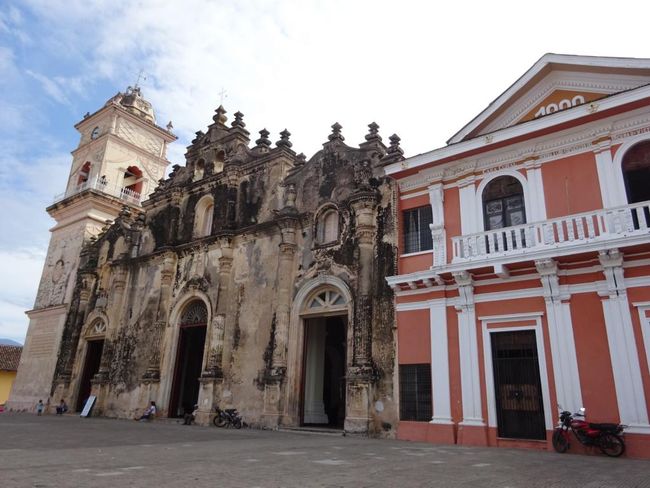
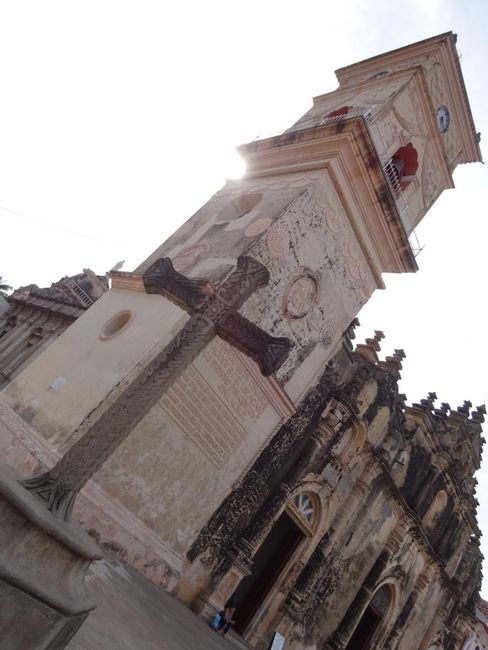
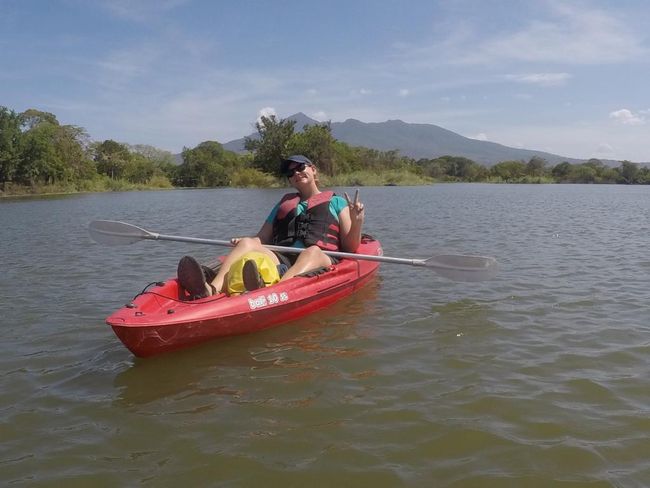
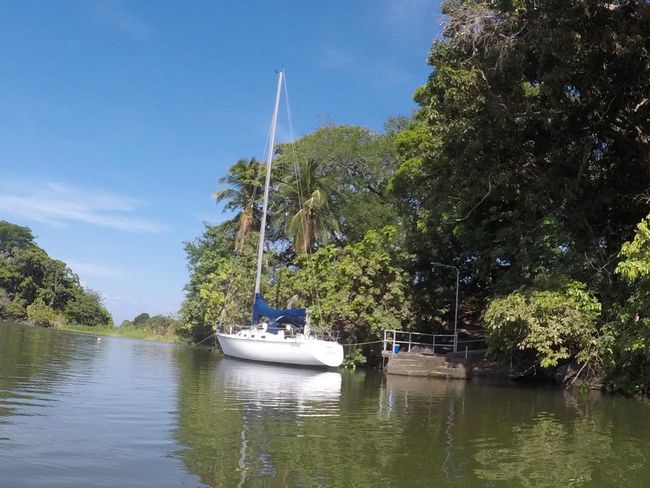
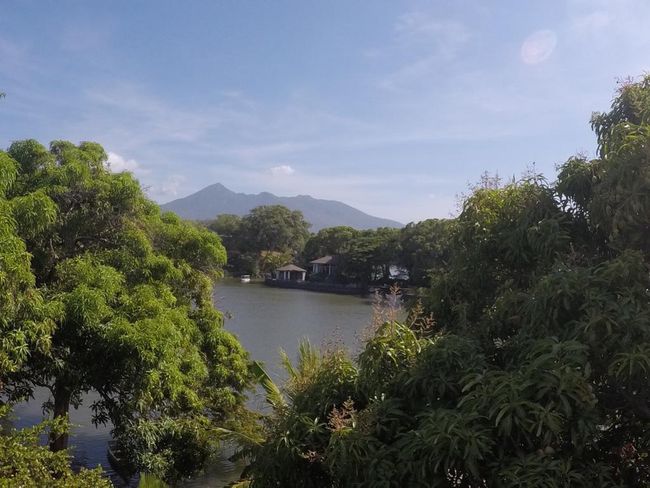
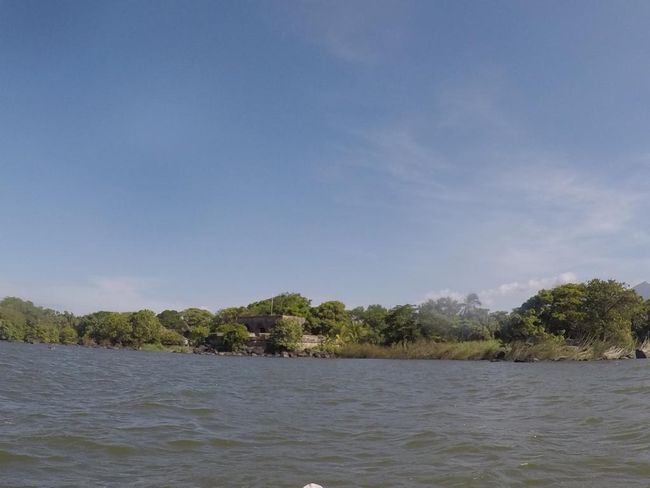
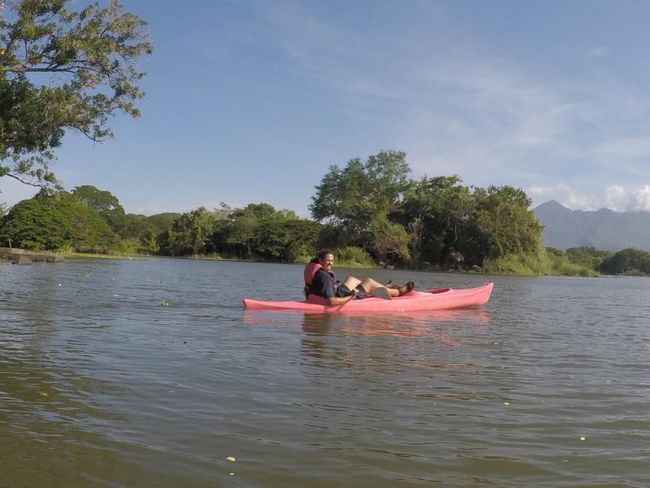
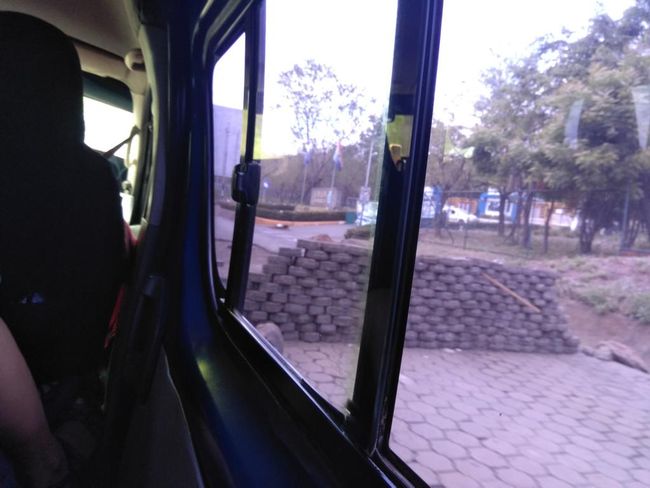
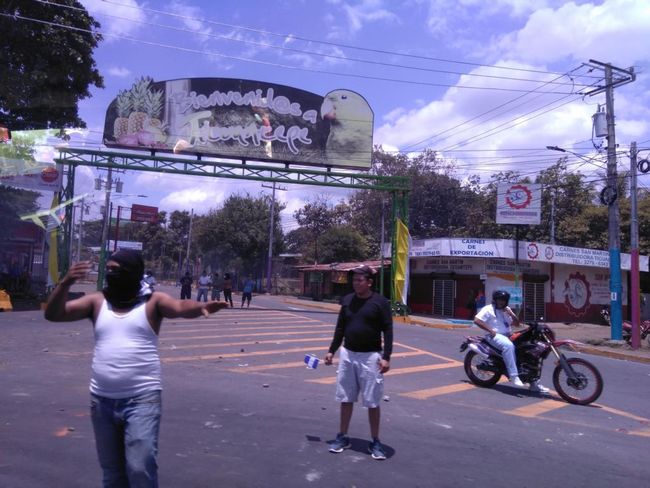
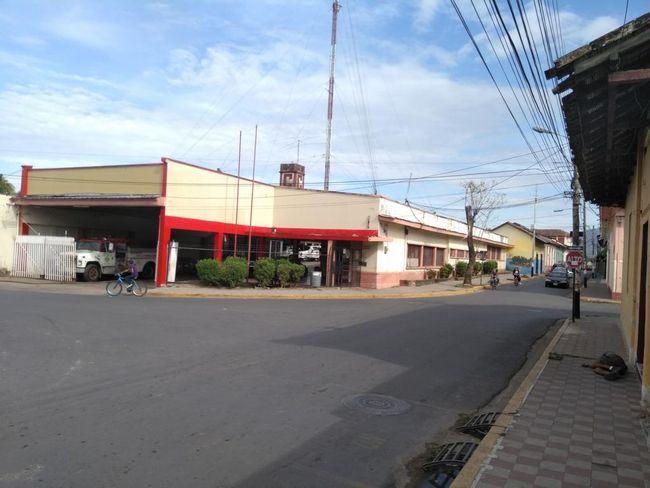
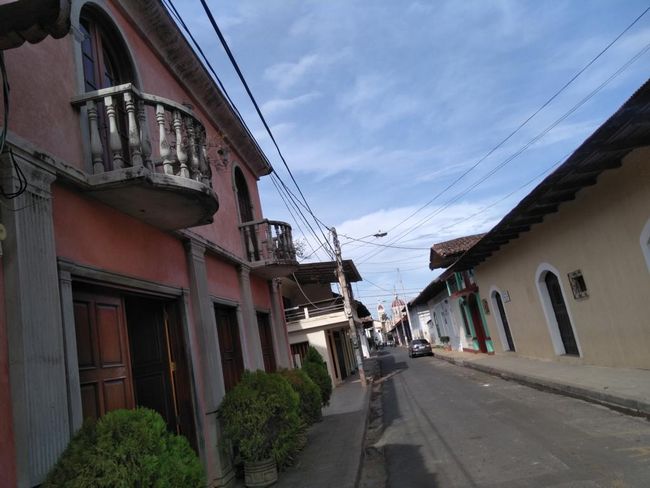
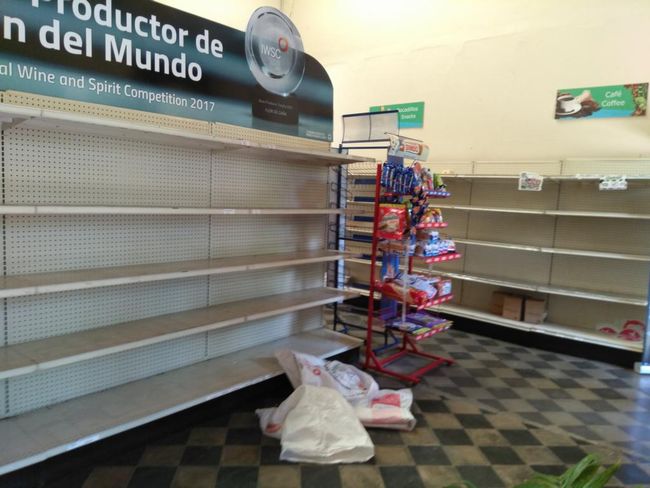
Ақпараттық бюллетеньге жазылу
In Granada or on the way there, the story took a dramatic turn.
We booked a shuttle bus from Leon to take us to Managua on a Friday. Kris, the manager of our hostel in Leon, had pointed out to us that there were renewed protests in the Masaya region and that the bus would therefore bypass the region. Unfortunately it is false. The bus drove right through the city of Masaya and suddenly we were right in the middle of the action. I didn't really notice it myself, as I usually fall asleep quickly as soon as I'm on a bus. Not so George. I woke up when Jörg, quite upset, talked to the bus driver why we were driving through here. Because we drove in a halting motorcade right through a crowd of demonstrators who were throwing stones at each other. When the bus passed, the street fighting stopped briefly, and the demonstrators waved us through before the stone-throwing continued (gentlemen's demonstrators are what they call it). It wasn't fun though. We also saw how cobblestones were dug out of the streets and piled up in the form of walls as street barricades.
Around noon we arrived in Granada, about 2 hours late. We had our hostel right in the city center, right next to the Parque Central. In the afternoon everything was still normal. Since we hadn't slept well the night before and were therefore quite tired, we decided to take a leisurely carriage ride to get an overview of the city's sights.
At night it started with loud firecrackers right on the street in front of our hotel. Recently, the protests and demonstrations surrounding the resignation of President Ortega had calmed down. But now, in some parts of Nicaragua, sentiment was heating up again, even stronger than before. And one of the more affected regions was Granada of all places. There were loud explosions and screams in the streets all night and it would be like this every night from now on.
The next morning we followed what was happening in the country in the online edition of the Nicaraguan newspaper “La Prensa”. The riots in the night had apparently been strongest in Masaya. Masaya had already been a stronghold of events during the times of the revolution. Too bad we had planned to go to the Mercado de Artesanias in Masaya just for that day. We also wanted to visit the Masaya volcano, where you can drive up to the edge of the crater and even watch lava in the evening. Due to the current situation, however, we decided with a heavy heart to do without it for the time being and wait until the situation improves.
So we spent the day in Granada and explored the city a little. Among other things, we visited the «Antigua Estacion del Ferrocarril», which is the old train station in Granada. This was absolutely not worth it. There is a pretty park with a large playground in front of the station, but only a few old railway carriages are on display in the complex itself. In addition, the former station building was apparently converted into an outdoor hairdressing salon, various women sat there on folding chairs and let other women do their hair. There was even a price list for haircuts.
In the evening we found out from the newspaper that our decision had been a good one. The riots in Masaya had not calmed down all Saturday. There was even a fire in the Mercado de Artesanias building and the market was closed. The newspaper said that residents around the market had reported that, strangely, at the time the fire broke out, only police and special forces were in and around the market.
We let ourselves be tempted by the calm during the day and by the pleasant, almost a little exuberant atmosphere in the tourist area of Granada to have a few more drinks in a bar. Around 9 o'clock in the evening we made our way back to the hostel, which was only about a 5-minute walk away. To do this we had to cross the Parque Central and didn't think too much about it at first. But as soon as we got to the square, we saw groups of young men loitering around, some even in the process of putting on masks. One was carrying an apparently home-made small mortar to fire some artillery. 2 men spoke to us on the way and said there was danger here, we should better get out of the dust as soon as possible. And we did as we were told, as quickly as possible.
In the evening the owner of our hostel was there as well, as an extra protection, as he said. We spoke to him about the situation and also told him about the scene in the park. He explained to us that it is believed that most of the looting and demolitions are being carried out by paramilitary groups on behalf of the government, and that the people we saw in the square were probably such groups, who were prepared for the night. The government then wants to blame the people so that a national emergency can be declared. The population is also angry that the police and the special units are using tear gas and firearms against the demonstrators, while they only have firecrackers and throw stones. Another 45-year-old man was killed by a bullet on Saturday night. The hostel manager said they believe the military will step in soon and depose the president themselves. The newspaper also reported that the military had promised not to take up arms against the demonstrators. He showed us videos from a Facebook group set up by demonstrators to let each other know about the situation and what is happening in different places. And indeed, these videos showed how the police used violence against peaceful protest marches. We had read an article in the newspaper where an old Civil War veteran talked and said that today's movement was not organized enough. There would be no delimited group, no head of the movement, no leader. The question we ask ourselves is: is that really still necessary in the age of Facebook?
Punctually at 10 a.m. the noise on the street started again. A few blocks behind our hostel was the market hall and you could hear people running down the street shouting to protect the market.
On Sunday it was very quiet again during the day. After a loud night we slept in for a long time. In the afternoon we decided to go kayaking to Las Isletas. This is a mini archipelago with 365 tiny tropical islands in Lago Cocibolca, the lake on which Granada is located. The islands were formed 10,000 years ago when neighboring Volcan Mombacho erupted, creating the rugged silhouette it sees today. They were once among the poorest parts of Granada and even today some of the islands are home to families who do not rightfully own the land. Gradually, however, they are being crowded out by wealthy owners, such as the Penas family, owners of Flor de Caña, and expats.
As we hiked through the Parque Central in the direction of the lake, various minibuses could be seen, into which huge amounts of luggage and tourists were stuffed. The rats are leaving the sinking ship, that much was clear. The tourists had gotten scared. However, we decided to wait a while longer, for a variety of reasons. First of all, we were not afraid that something would happen to us, people's anger was directed at the government and not at us. We were never attacked or treated badly, on the contrary, we were even warned and sent away when we were somewhere we shouldn't be. Secondly, it was quiet and safe during the day and we don't hang around much in the evenings anyway. Third, we had booked a Spanish course for the next week that we were reluctant to cancel. And fourthly, this was the worst thing that could happen to these people: the tourists run away, the best source of income dries up. So off to the lake!
We rented a kayak for 3 hours and took a leisurely cruise to the islands. There is even a small Spanish fortress on one of the islets, the Castillo San Pablo, where we made a stop.
Then we walked along the lake promenade and through the Centro Turistico, where not much was going on, back to the city center.
Since we didn't feel like meeting the dubious characters in the park again, we made our way back to the hostel early this morning. In the Parque Central we met a fairly large group of armed police officers instead of dubious types. Should that make you feel safer after all you've heard about the police? We will see….
Although the situation hadn't calmed down on Monday night either, and we again heard the banging of firecrackers and God-knows-what along with loud screaming all night long, we went to the Spanish school for our course on Monday morning. The course was one-to-one, which means that we were each assigned a private teacher, which was also very good, because everyone could benefit individually according to their level. The lesson lasted 4 hours. I received a full load of grammar repetition, while Jörg practiced reading comprehension and had lively discussions with his teacher about the political situation. Our Spanish teachers also calmed us down and said we shouldn't worry, we weren't in any danger.
After class we looked for a restaurant in the tourist mile to eat something. In the meantime, however, the picture had changed significantly. We were no longer approached by agents from tour offices on the way, which was mainly due to the fact that hardly any more tours could be carried out. The roads to the north were now all blocked, it was no longer possible to get to Masaya, the volcano or other sights. Public transport had also been suspended, and there were no longer any buses heading north. It was no longer possible to get to Leon, Masaya, Managua or even the airport. The small grocery store on the street was cleared out for fear of looting. The restaurants have been closed. And everywhere else in the city center the same picture was presented. While some were still trying desperately to maintain a certain degree of normality, others were preparing for the worst. Windows and doors were nailed shut with wooden boards or corrugated iron, the sound of drills could be heard everywhere, people were at work everywhere to protect their belongings. Some streets were deserted even though it was still early afternoon, it was downright spooky. When we also heard that the larger international bus lines to Honduras and Costa Rica were no longer running, we made the decision without further ado: we had to get out of here as soon as possible. Even at this point in time we still do not fear for our safety. The only thing we feared was that we would suddenly be stuck here, even if the roads to the south were also blocked. It was still quieter in the south, the roads were open. Just how much longer? When was the right moment to run away? We had a booked flight in a week from San Jose in Costa Rica to Ecuador which we definitely couldn't miss. What would happen if suddenly there was no getting through? How long would it take?
We asked various tour agencies and they all advised us: go while you still can. Nobody knows what will happen here. How difficult must it be for a tourist guide to advise his customers to leave their country? Due to an ultimatum from the church, which wanted to act as a mediator in this conflict, talks between the government and representatives of the population were scheduled for Monday. We learned that these talks had now been postponed to Wednesday and that the ultimatum was not kept. The hope of an early end to the conflict was thus extinguished.
With a heavy heart we booked a private transport in one of the tour offices, which would pick us up at the hotel at 07:00 the next morning and take us to the Costa Rican border. Now we wanted to get out of here as soon as possible so that we could at least make something out of the remaining week, if not in Nicaragua then at least in Costa Rica.
When we walked back to the hostel through the Parque Central in the late afternoon, we noticed that there were a lot of beggars, apparently very poor people and dubious characters hanging around. Everywhere they sat in small groups, and they all had large and empty backpacks with them. What is going on here?
At the hostel we spoke to the owner's family again and they told us that there had been massive looting on some downtown streets last night. That is also the reason that everyone barricades their doors and windows. Among other things, the large main road was affected, which leads directly to the Parque Central. So exactly to where we had seen the group of policemen the night before! It was very clear, said the family, it was being told and confirmed everywhere, the police were there and simply looked the other way when the shops and businesses on the street were looted.
We showed them some photos we had taken minutes earlier of the dubious characters in the park. They were immediately startled and said it must be the Ladrones (robbers) who are gathering there, that's not normal. They hope for rain tonight, they said. If it rained, the robbers might not strike. And indeed, a short time later it began to pour down like buckets. It rained all night and it stayed quiet that night.
As an outsider, it's really incredibly difficult to get out of this conflict. At first we assumed it was a conflict between right-wing and left-wing parties. But it is not like that. It is a conflict for or against the president. The warring parties are all Sandinistas, i.e. supporters of the left-wing movement that triggered the 1978 revolution. Today the question is no longer right or left, but apparently only for or against Daniel Ortega. As we have already explained, Daniel Ortega himself has become what he used to fight as a revolutionary: an authoritarian dictator who wants to keep his power in the country at all costs.
However, once you get the hang of it, things don't get any easier. The task now is to identify the various parties involved. There are the Sandinistas who are against the president, the actual demonstrators. Then there are the Sandinistas who still stand behind the President, our hostel boss calls them Danielistas. There may still be some right-wing and leftover opponents of the revolution from the old hour, no idea what role they play. A large part of the people probably doesn't take a stand at all, but stays out and tries to protect their belongings. Then there are some paramilitary groups that are more or less secretly commissioned by the government to sow terror in the streets. There are also a few poor wretches who just take advantage of the moment and try to get something for themselves by looting. Then there's the police, no one seems to know exactly which side they're on. There are also special units whose job it is to “mediate” uprisings, protests and the like. There is also the church, which wants to act as a mediator and mediate between the parties. And finally the military, which has not interfered so far. And how, please, should one be able to distinguish all these different types from one another? Nobody can explain that to you either. No pig sees through here.
Although this situation is uncomfortable, you have to honestly say that it is incredibly interesting to be able to experience these events up close. Seen from a safe position, of course.
Personally, I've learned an important lesson from this whole thing: how difficult, if not impossible, it is for an outsider to form an opinion and judge. It is customary for the western world powers in particular to get involved everywhere, and to support one or the other party in distant conflicts that do not affect them or concern them at all. By what right, I ask, and on what basis?
I was in this country, was a witness to one of its dark chapters and saw a wide variety of parties involved in this conflict and I have not the slightest chance of even distinguishing and delimiting them precisely, let alone analyzing their motivations and the associated previous histories and developments and to judge. Which party is right here? Is it the supporters of the prominent revolutionary who are clinging to the gains of the revolution and want the economic boom to continue as before, no matter what the cost? Or is it the retirees who are deprived of their pensions? Or the students who want change and innovation in the country, demanding an end to corruption, repression and censorship? Or is it the revolutionary himself who is trying with all his might to maintain his presidency, by force if necessary? Who am I to judge that.
It was very difficult for us to leave Nicaragua and we were very sad when we were picked up the next day. At least for me, this country was high on the Central American wish list and I really regret that we didn't have enough time to see everything we wanted to see.
I feel even more sorry for the people who are now left with nothing. I remember the words of my Spanish teacher, the owner of the language school. She said it took so long after the civil war to build it all up. To convince the world that Nicaragua is a peaceful country. In order to bring tourists into the country, to create a tourist infrastructure in order to create prosperity for the country. Things were thriving in Nicaragua, times had been better, and there was hope that they would soon be able to catch up with Guatemala or Mexico. And now you have to start all over again.
I wish Nicaragua and its people good luck and perseverance for the coming time. I hope with all my heart that they will find a solution among themselves, that this conflict will lead to something good and that better times will come soon. We experienced a short but very intensive time in this country and we will definitely like to come back here!
Ақпараттық бюллетеньге жазылу
Жауап
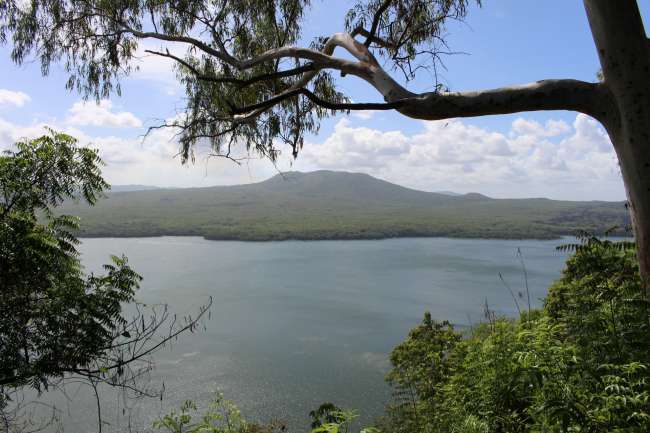
Саяхат есептері Никарагуа

